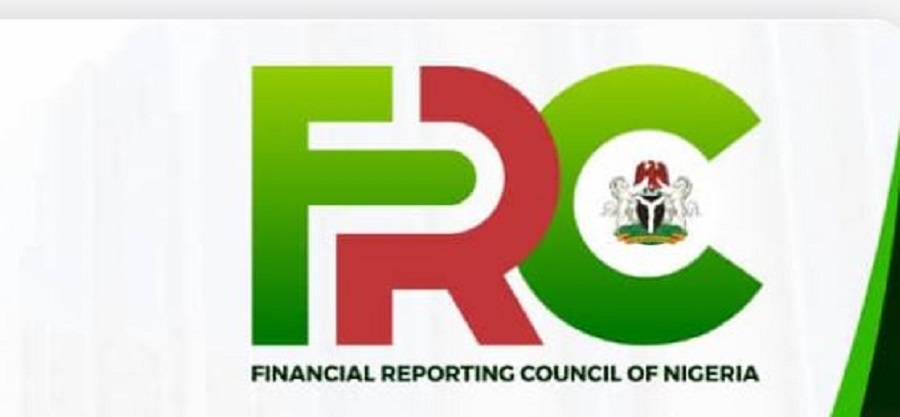E-Financial
Heritage Bank Drives Sustainable Banking Practices, Feeds 500 Underprivileged Children

As part of its sustainability drive in the corporate social responsibility space, Heritage Bank Plc has reiterated its commitment to improving the welfare and economic development of communities by feeding over 500 underprivileged children.

The support is in collaboration with Adyva Foods’ project tagged, “Feed a Kid,” which was in commemoration of Children’s Day celebration.
Statistics show that an average Nigerian lives on less than a dollar per day and this makes it difficult for a lot of families to feed properly. An estimated 2 million children in Nigeria suffer from severe acute malnutrition (SAM). In an analysis of 91 countries, including Nigeria, the UNICEF report finds that half of children aged 6-23 months globally are not being fed the minimum recommended number of meals a day. Two-thirds do not consume the minimum number of food groups they need to thrive.
Against this backdrop, Ozena Utulu, the Ag. Group Head, Corporate Communications of the Bank, said the commitment so far which is in line with the Sustainable Banking Practices, was to help mitigate hunger by providing to the less privileged and reduce the adverse effect of the food insecurity in the country.
According to her, we have continued to put sustainability at the heart of our decision-making for the sake of humanity and the bank’s own bottom line because a healthy planet is the backbone of nearly every industry on Earth.
“Heritage Bank’s partnership in this event offers us an opportunity to fulfil our quota in adherence to the sustainable banking practices that ensures that banks and related institutions have the interest of their stakeholders at the core of their strategies,” Utulu stated.
She also advised parents to explore the advantages and utilize the huge benefits the bank’s BUD account hold for their children.
“Access to cash backed loan by parent/guardian/sponsor for school fees/education loan. You can access up to 70per cent of your balance held with the Bank as cash backed loan. The customer must have run the BUD account for a minimum of 6 months to access the cash backed loan. Ease of saving through standing order instructions. Access to exclusive events. Free participation in the BUD MINI career mentoring and coaching sessions once a year. Opportunity to act as a Heritage Bank Executive Committee member for one day,” Utulu explained.
The CEO, Adyva Foods, Anyagwa Adanma said that the idea of the partnership was to feed over 500 less privileged kids with cooked food and provide them with goody bags containing stationery, educational materials to mention but a few.
She added, “I will advise parents to ensure they educate their children and teach them the savings culture and Financial literacy for future benefits.”
Also speaking at the event, Nkechi Toluwani, a partner with Adyva’s “Feed a Kid” project stated, “Heritage Bank is a supportive bank and the incentive behind feed a kid is huge, therefore, for Heritage Bank to partner with Adyva Foods to feed kids shows how compassionate, kind, and responsible the bank is to people’s welfare.”
E-Financial
FG Halts FRC’s Turnover-Based Levy, Introduces N25m Cap

Federal government has halted the implementation of the controversial turnover-based annual dues imposed by the Financial Reporting Council (FRC) and has introduced a N25 million cap for Public Interest Entities (PIEs) in the private sector.

This was disclosed on Sunday by Dr Jumoke Oduwole, minister Federal Ministry of Industry, Trade and Investment.
“To provide immediate clarity, the Minister has directed the Financial Reporting Council (FRC) to apply an interim cap on annual dues payable by private sector PIEs at N25m, aligned with the cap already in place for publicly listed entities under the legislation.
“This directive creates a stable environment for compliance for affected companies in the short term and reflects the Ministry’s commitment to prioritizing transparency, investor confidence, and regulatory equity while allowing the Ministry of Justice to appropriately determine the longer-term path for seeking legislative amendments on behalf of the Federal Government, if required,” the ministry announced.
The decision followed sustained pressure and advocacy from leading industry groups, including the Oil Producers Trade Section (OPTS), the Association of Licensed Telecommunications Operators of Nigeria (ALTON), and the Nigeria Employers’ Consultative Association (NECA), who expressed serious concerns about the Financial Reporting Council (Amendment) Act 2023.
At the heart of the outcry was the reclassification of large private companies as PIEs, which subjected them to annual dues ranging from 0.02 per cent to 0.05 per cent of turnover—without any upper limit.
This was in stark contrast to the fixed ₦25m levy applied to publicly listed companies, regardless of their size or market value.
Responding to these concerns, the Federal Ministry of Industry, Trade and Investment convened a high-level stakeholder engagement in March 2025, aimed at addressing the implications of the amended Act and preserving a fair regulatory environment.
Following a formal public consultation held on March 26, 2025, the Ministry announced an administrative pause on the implementation of the turnover-based levies.
The ministry explained, “In line with this commitment, the Technical Working Group coordinated by the Ministry, comprising NECA, MAN, ALTON, NACCIMA, PFPTRC, CAC, and SEC, along with a robust team from the FRCN, met six times over a three-week period for stakeholder consultations.”
The ministry narrated that after six rounds of stakeholder meetings over a three-week period, the Working Group submitted a detailed report to the Minister of Industry, Trade and Investment on April 17, 2025.
The Minister subsequently briefed President Bola Tinubu, highlighting the disproportionate burden the policy placed on affected companies and its potential to harm investor confidence.
It added, “These engagements culminated in a report assessing the implications of Section 33D of the FRC (Amendment) Act 2023 submitted to the Honourable Minister on April 17, 2025, the Minister of industry trade and investment provided a detailed briefing to Mr. President on the critical concerns raised by organized private sector stakeholders prior to the implementation of the administrative pause and made recommendations based on the submitted report and affirms that the administrative pause will be maintained in the mid- to long-term, pending a broader legislative review.”
E-Financial
GTBank to Close Branches Early Today for Half-Year Audit

Guaranty Trust Bank Ltd. (GTBank) will close all its branches across Nigeria earlier than usual on today (Monday, June 30), according to email sent to customers at the weekend.

According to the message, the early closure allows for the bank’s scheduled half-year audit activities.
The statement read, “Please be informed that our branches nationwide will close to customers early on Monday, June 30, 2025, for our half-year audit.”
It also specified different closure times for locations based on geographical locations in the country.
“Kindly note the early closure time below: Upcountry Branches – 2.00 pm; Lagos Branches – 3.00 pm,” the bank stated.
GTBank advised customers to use its digital banking channels for transactions during the period of early closure.
GTBank assured that its branches will resume operations at regular business hours on Tuesday, July 1.
It appreciated customers for their understanding and continued patronage during the audit period.
E-Financial
Shareholders Oppose Transfer of Unclaimed Dividend to CBN

Shareholders have condemned the recent decision by the National Assembly to pass legislation requiring the transfer of all unclaimed dividends from company registrars to accounts managed by the Securities and Exchange Commission (SEC), as opened by the Debt Management Office at the Central Bank of Nigeria (CBN).

In a statement issued under the aegis of the Independent Shareholders Association of Nigeria (ISAN), shareholders strongly rejected the position of the National Assembly, describing the move as an unconstitutional transfer of unclaimed dividends to the CBN.
They noted that this action constitutes a gross violation of shareholders’ rights, a betrayal of investor trust, and a dangerous precedent that threatens the sanctity of private property and the integrity of the capital market.
Giving reasons for their rejection, the shareholders emphasized that unclaimed dividends are not government revenue; they remain the legal property of individual investors and their heirs, regardless of the time elapsed.
They argued that the attempt to centralize and manage these funds under SEC control amounts to indirect expropriation.
They added that this law would erode investor confidence in Nigeria’s capital markets, as both local and international investors require assurance that their returns will be protected—not seized under the guise of state policy.
The statement, jointly signed by Moses Igbrude and Mr. Eke Chibuzor, national coordinator and general secretary respectively of ISAN, criticized the passage of the law without broad consultations with shareholders, registrars, and capital market stakeholders, calling it a troubling disregard for participatory governance and due process.
“There are no clear frameworks for how the SEC intends to manage these funds, what returns will be offered to rightful owners, or how and when claims will be honored. This is a recipe for bureaucratic mismanagement and corruption,” the statement read. It added that instead of simplifying the process for claiming unclaimed dividends, the law introduces additional layers of opacity and complexity—especially for rural and aging investors who already face significant challenges.
Shareholders, therefore, demanded the immediate suspension of the law’s implementation and urged President Bola Ahmed Tinubu not to assent to the bill. If already signed, they called for its immediate suspension pending judicial review.
They also noted that the association is mobilizing legal resources to challenge the law in court, describing it as unconstitutional, unjust, and economically harmful.
Instead, they proposed that efforts should focus on reforming the claims process at the registrar level through technology, public education, and standardization—not through centralization and state appropriation.
The group concluded that the future of Nigeria’s investment climate must be built on fairness, property protection, and inclusive growth—not arbitrary power grabs. They called on all shareholders to unite in rejecting this injustice.

 General News3 days ago
General News3 days agoNigeria’s BNPL Market is Projected to Value @ $2.6B by 2030

 Telecom3 days ago
Telecom3 days agoFree WiFi Meets Mega Entertainment at the Grand Opening of Solution Fun City

 E-Financial3 days ago
E-Financial3 days agoNIA Puts Industry Written Premium @ N1.5trn in 2024

 Telecom3 days ago
Telecom3 days agoInstagram Safety Tools Every Parent Should Know About

 Telecom3 days ago
Telecom3 days agoV-Malaysia 2025: QNET Strengthens Global Network with Landmark 5-Day Event

 E-Financial3 days ago
E-Financial3 days agoUN and Sterling One Foundation Lead Coalition Ahead of ASIS 2025

 News3 days ago
News3 days agoINTERPOL Report Shows Cybercrime is West, East African Most Dominant Security Concern

 E-Financial12 hours ago
E-Financial12 hours agoShareholders Oppose Transfer of Unclaimed Dividend to CBN




























